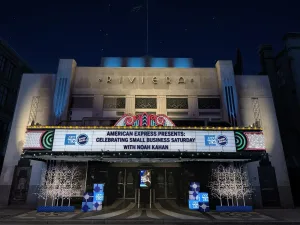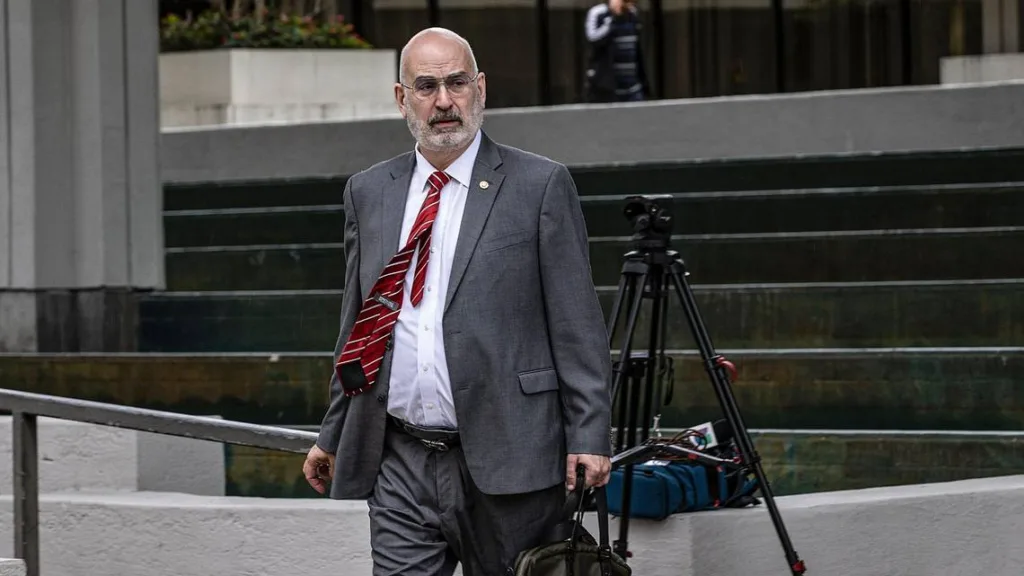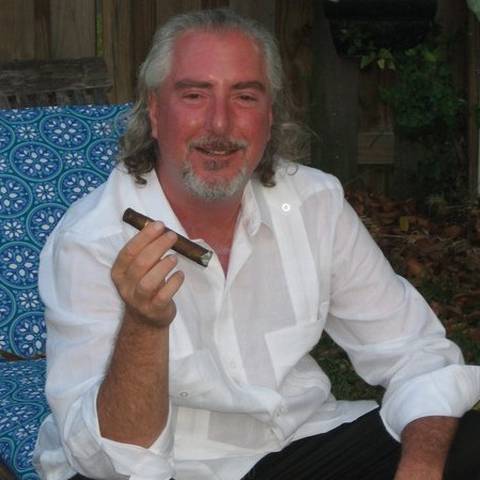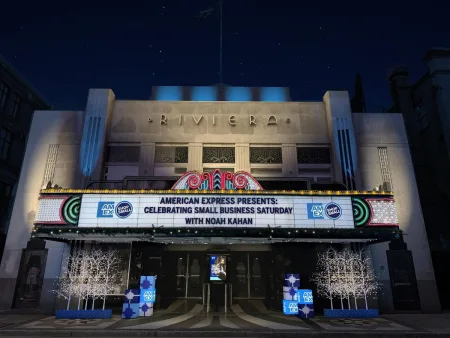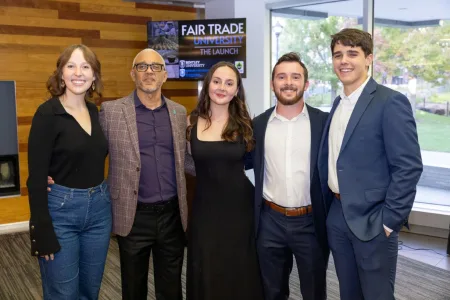Summarize like a search engine marketing qualified this material
El exgerente de la ciudad de Miami, Emilio González, testificó el martes en el juicio civil del comisionado de la ciudad de Miami, Joe Carollo, quien es acusado por dos empresarios de La Pequeña Habana de usar su influencia en una “campaña de acoso” contra varias empresas en las que tienen intereses.
pportal@miamiherald.com
Unable to attend a Miami city commission meeting just before Christmas in 2019 because of his wife’s hospitalization, City Manager Emilio Gonzalez sat down on his couch and turned on the television.
[–>
What he saw only added to his worries: Miami Commissioner Joe Carollo had chosen to use the manager’s two-week absence as an opportunity to rant about how Gonzalez had failed to push code enforcement to crack down on a host of Little Havana commercial properties owned by businessmen William Fuller and Martin Pinilla.
[–>
The two men were already suing Carollo, claiming he had been abusing his authority to harass them and hurting their businesses in a political vendetta. Before the end of the commission meeting, Carollo called for a vote to oust Gonzalez. It failed. But from his couch, the city manager said he began taking notes about what he took as pressure from the city commissioner.
[–>
“He was trying to terminate me because I would not weaponize city government against Mr. Fuller,” Gonzalez told jurors during the second day of what is expected to be a three-week trial in Fort Lauderdale federal court before U .S. District Judge in the Southern District of Florida, Rodney Smith. At stake for the famously combative commissioner if the suit succeeds: potentially millions of dollars in damages and a politically embarrassing loss.
[–>
Under questioning from Jeff Gutchess, the attorney for the businessmen, Gonzalez told of a midnight walk he took along the business corridor of Calle Ocho not long after being chosen by commissioners to run the city. At that time, he said he wasn’t even aware Fuller and Pinilla owned the properties Carollo pointed out during the walk, like the Ball & Chain nightclub and the Union Beer brewery.
[–>
Gonzalez said Carollo not only made disparaging remarks, but pointed to a mural that he said had “too many Black people in it,” because he didn’t want the residents of Little Havana to think it was becoming a “Black neighborhood.”
[–>
“He said there was foreign intelligence infiltration on Southwest Eighth Street and that the Oyster Bar wasn’t Cuban American,” Gonzalez told Gutchess and jurors.
[–>
Carollo defense: Buildings in disrepair
[–>
Carollo’s attorney Ben Kuehne told jurors that commissioners’ concerns were justified. He argued that some of Fuller and Pinilla’s properties were in disarray and had received notice from the city to repair or tear them down. He also got Gonzalez to admit that Carollo alerted him to an illegal boxing ring on the Union Beer property. Gonzalez said he followed through on that complaint, visiting, calling staff and shutting it down before the fight because the business had not received a special permit for the event.
[–>
Kuehne also tried discrediting Gonzalez, a decorated Army colonel who worked intelligence, stored nuclear codes and ran a staff of 19,000 as director of Immigration for Homeland Security, a Senate-sworn position. The attorney hammered away at those “notes-to-self” that Gonzalez said he kept and that a staffer eventually wrote up on a computer.
[–>
“On his home computer with no record?” Kuehne asked, rhetorically. “Did your chief of staff tell HR [human resources] ¿Me estoy tomando un tiempo libre para poder escribir cosas personales para mi jefe?
Gonzalez said he didn’t know. “We would discuss it and he would write it up and give it to me.”
[–>
Fuller and Pinilla, the neighborhood’s largest commercial property owners, claim in the lawsuit that almost immediately after they threw their support behind Carollo’s political opponent Alfonso “Alfie” Leon during a close election in 2017, the city’s longest serving and most controversial commissioner set out to destroy them.
[–>
Despite repeated attempts to bring Carollo aboard with invites to events after his election victory, the duo claim Carollo pressured the city’s top managers to push code enforcement inspectors to harass their businesses. They say he tried to quash their First Amendment right to hold public events for Leon and have sued the commissioner for $2.5 million in damages and punitive fees.
[–>
At one point, Gonzalez told jurors, Carollo was so frustrated that he went on television to say the “mayor and I were running a protection racket for businesses on Eighth Street.”
[–>
Carollo and his attorneys say the commissioner was trying to protect his 100,000 or so constituents’ quality of life and require that Fuller and Pinilla correct or replace businesses and buildings that had been in disrepair, some for several years.
[–>
During Monday’s opening statements, Gutchess described Carollo’s alleged harassment as a constant drip, almost torturous. He played video of a Feb. 14, 2019, commission meeting that he called the “Valentine’s Day Massacre,” in which Carollo became so frustrated with staffers not willing to follow his orders that he asked the governor for a special prosecutor to look into staff’s refusals to look into Fuller’s properties.
[–>
At one point during the meeting, Miami Police Chief Jorge Colina told Carollo, “you’re not going to bully me,” and called the commissioner’s requests “absolutely ridiculous.” Even Miami Mayor Francis Suarez grabbed the microphone at that meeting and asked Carollo if he also intended on asking the governor to investigate elected officials for “targeting” business owners with code enforcement.
[–>
‘He’s relentless’
[–>
The attorney also told jurors how Carollo went to war against the business owners on Spanish radio, saying they wanted to “de-Cubanize” and de-Latinize the Little Havana business district and how they were being supported by a small group of Venezuelans.
[–>
“Just one day after the next. He’s relentless,” Gutchess said. “They’re [even] cavando bajo el capó de una heladería”.
Another Carollo attorney, Mason Pertnoy, claimed Fuller and Pinilla have a long-standing practice of ignoring building codes, having constructed and rehabbed several of their properties without permits. He also said that could be a danger with asbestos in the walls.
[–>
Pertnoy told the commissioner’s story, explaining how the commissioner first elected into Miami office in the early 1980s was a Pedro Pan child from Cuba who moved to Miami permanently at 15 and who joined the police department before beginning a four-decade political career. And he told jurors how Carollo has yearly food drives for the needy, hands out backpacks to students each year and how he made sure all seniors in his district were vaccinated for COVID-19.
[–>
“Joe is the voice of his community,” Pertnoy said, before telling jurors, “the plaintiffs are not good neighbors.”
[–>
Jurors were given the rest of the week off and the trial is expected to resume Monday.
Esta historia fue publicada originalmente 11 de abril de 2023, 19:24.
Generate an short article about Carollo ‘implacable’ en la campaña para cerrar el negocio de Calle Ocho, dice el abogado al jurado
